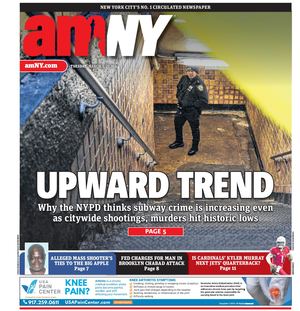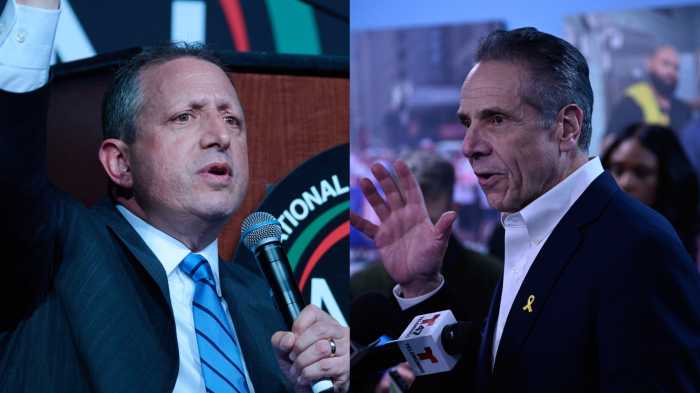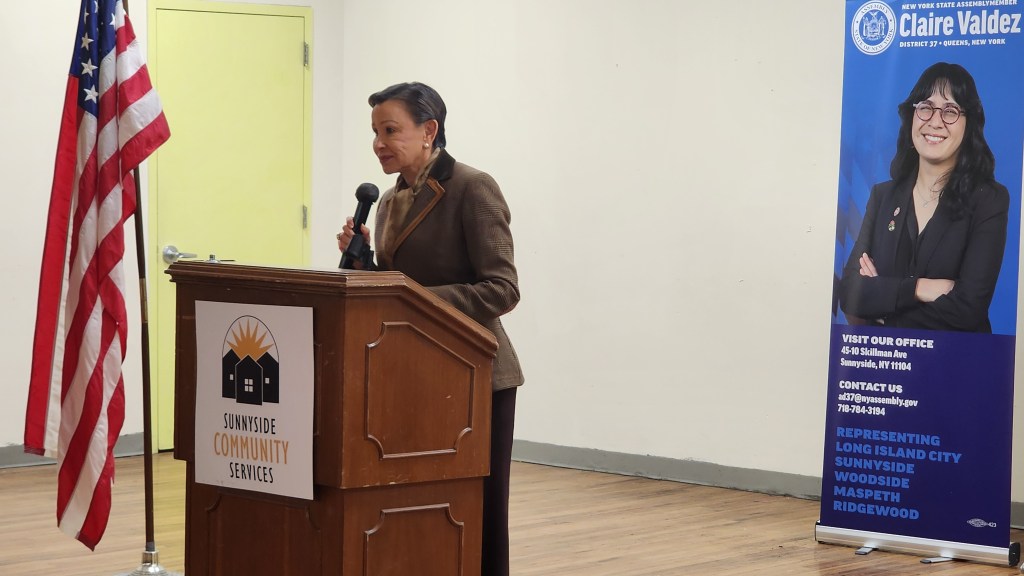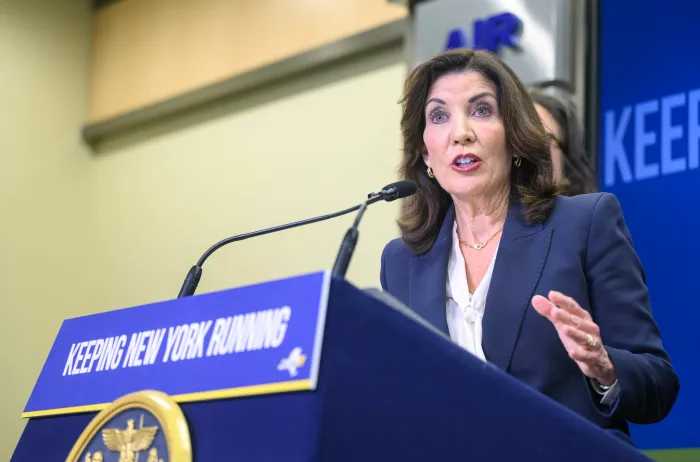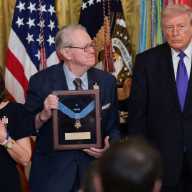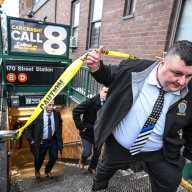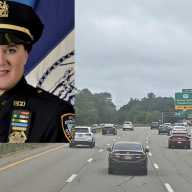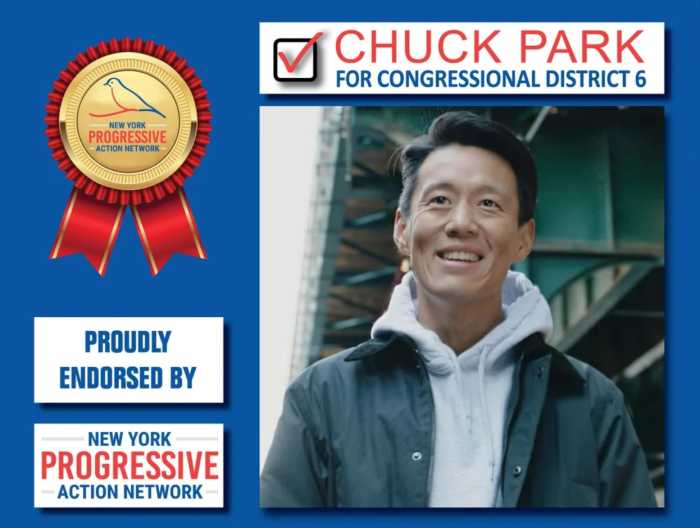Former Gov. Andrew Cuomo on Wednesday gathered with labor groups backing his mayoral campaign to announce that if he is elected to City Hall this year, he will push the state government to boost New York City’s minimum wage to $20 per hour.
Cuomo, the front-runner in the fast-approaching June 24 Democratic primary, unveiled his pledge to raise the city’s minimum wage by 2027 during a May 28 rally at 1199SEIU’s Manhattan headquarters. The proposal would apply to the roughly 800,000 city workers currently eligible for the state minimum wage, according to Cuomo’s campaign.
He also received several endorsements from labor groups, including the Retail, Wholesale, and Department Store Union (RWDSU) and the Amalgamated Transit Union (ATU).
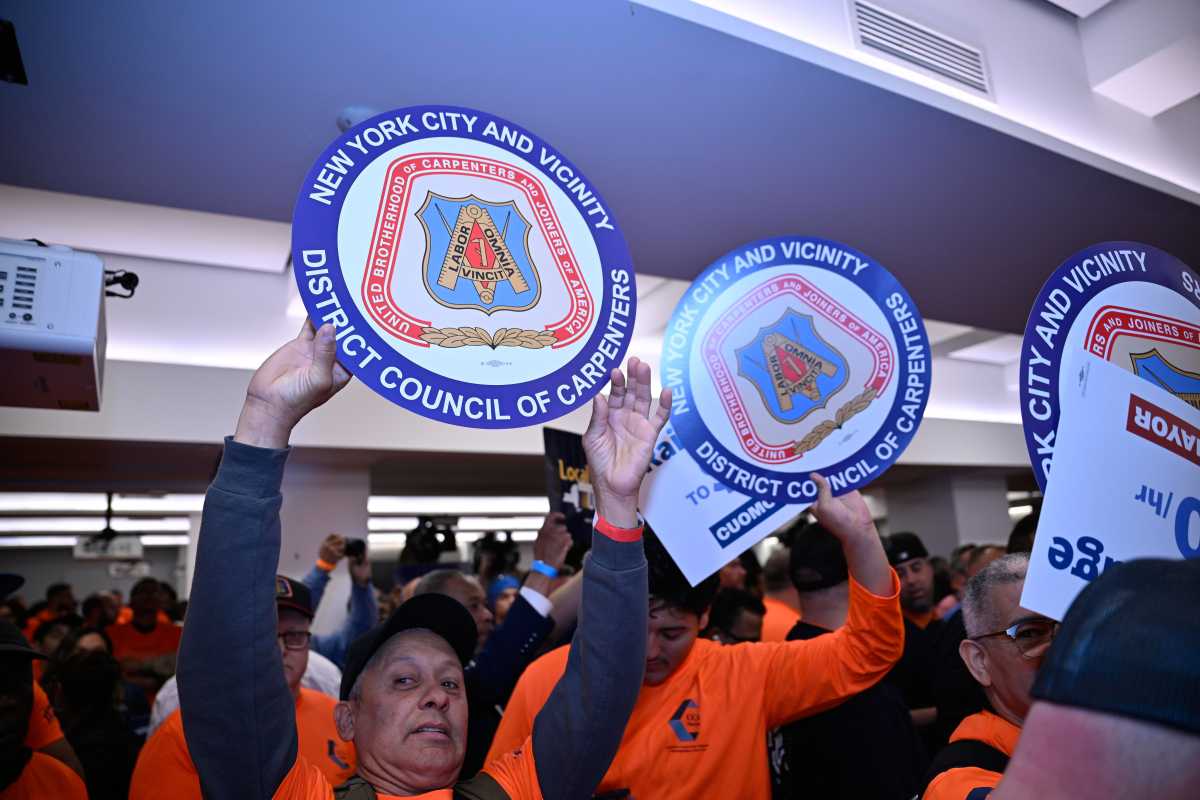
The former governor — who stepped down in 2021 amid accusations of sexual harassment and that he mishandled COVID-19 in nursing homes, both of which he denies — said he can get the proposal over the finish line because he did so before when he passed a $15 minimum wage in 2016. Cuomo predicted that he will face resistance from the business community, political pundits, and other elected officials in his latest effort if he is elected mayor.
“We did it before, and we’re going to do it again, we raised it to $15,” Cuomo said. “The highest minimum wage in the United States. And what happened when we did it? The economy went up, not down.”
Cuomo said the increase is roughly equivalent to what the statewide minimum wage would have reached if his 2016 plan had been indexed to inflation at the time.
The proposal also includes a study the city would conduct on the cost-of-living, to be completed by Jan. 1, 2027, that can be used for indexing the minimum wage going forward. Furthermore, it would be paired with a tax credit for small businesses with 10 or fewer full-time employees.
Hurdles in Cuomo’s campaign promise
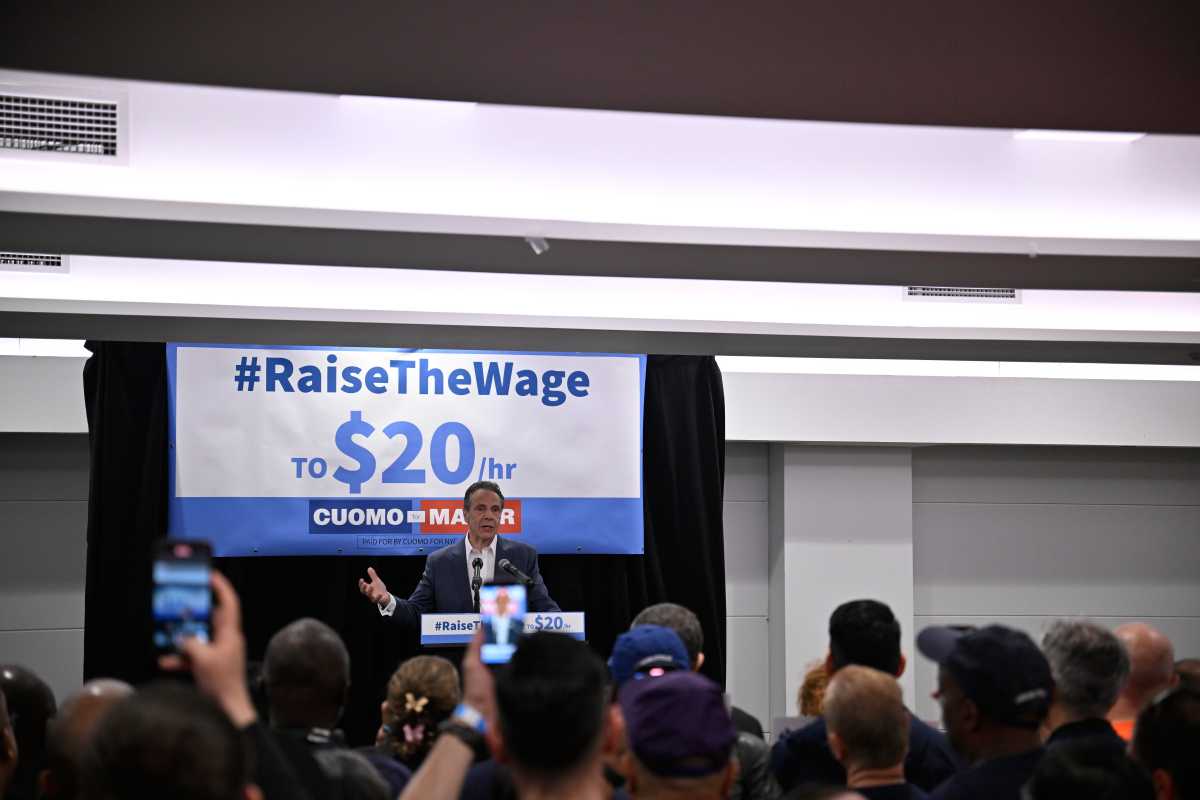
However, Cuomo’s pledge needs the signoff of Gov. Kathy Hochul and the state legislature, who together raised the minimum wage to $16.50-an-hour in the city this year and have indexed the state rate to inflation starting in 2027.
He did not elaborate on how we would achieve that goal in his prepared remarks, nor did he take questions following the event — instead leaving through a back exit and waving to reporters through his car window as he drove away through a red light.
Instead, Cuomo simply said he would rely on organized labor to get the proposal passed in Albany.
“We get it passed the way we’ve gotten every progressive reform passed in the past 30 years,” Cuomo said. “We organize the working men and women of this city. What organizes the working men and women of this city? The labor movement.”
Cuomo spokesperson Rich Azzopardi said the former governor plans to do what he did in 2015 and 2016 to get the proposal greenlit — “coalition build.”
When asked why Cuomo did not index raising the minimum wage to inflation in 2016, Azzopardi said, “We passed the plan we could pass,” pointing to the difficulty of getting it through the then Republican-controlled state Senate.

The former governor, however, was not always on board with raising the minimum wage in the five boroughs.
In 2014, he rejected a proposal from then-Mayor Bill de Blasio to give the city home-rule power over raising its minimum wage, arguing it would create a “chaotic situation” and was an authority that should be reserved for the state.
Azzopardi insisted that de Blasio “never presented a plan” at the time.
City Comptroller Brad Lander, one of seven Democrats running against Cuomo in the June 24 primary, said through a spokesperson that Cuomo was the “biggest obstacle” to workers fighting for better wages when he was governor.
Lander pokesperson Dora Pekec said: “New Yorkers remember Andrew Cuomo famously declared war on labor unions, and won’t be fooled by his insulting, desperate attempts to rewrite history.”
